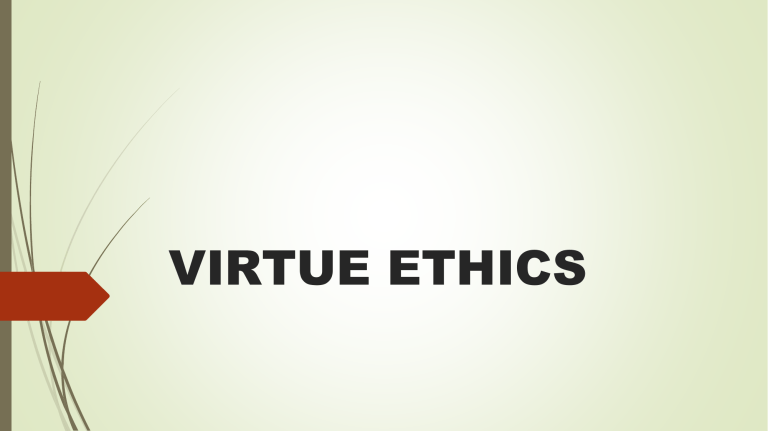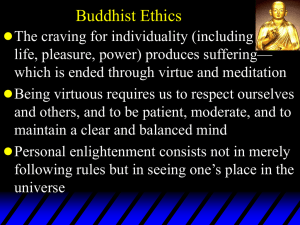
VIRTUE ETHICS LEARNING OBJECTIVES Articulate the meaning and nature of virtue ethics Distinguish deontology and consequentialism from virtue ethics To explain Eudaimonism as different from the Ethics of Care and AgentBased Theories Describe Aristotle’s ethical points on the concept of happiness, virtue, telos, and good habit Use Aristotelian ethical frameworks or principles to analyze moral experiences AN INTRODUCTION TO VIRTUE ETHICS AN INTRODUCTION TO VIRTUE ETHICS Greeks overshadowed Confucious Dominated in the development of Western Moral Philosophy Virtue Ethics is grounded in Greek’s tradition, which demonstrates theories essential for moral development. Virtue Ethics Defined It emphasizes one’s personal character in moral thinking. Not an action-based ethics but a person-based one. Lay emphasis on the role of the character Does not provide moral agent specific principles to guide one’s action. Practical wisdom is a central category that helps individual become virtuous. No universal principles Virtue Ethics Defined DEONTOLOGICAL APPROACH VIRTUE ETHICS CONSEQUENTIALIST APPROACH Virtue Ethics Defined It deals with the queries like: What kind of life should I live? What is a good life? How can I be consisted in my moral actions?




